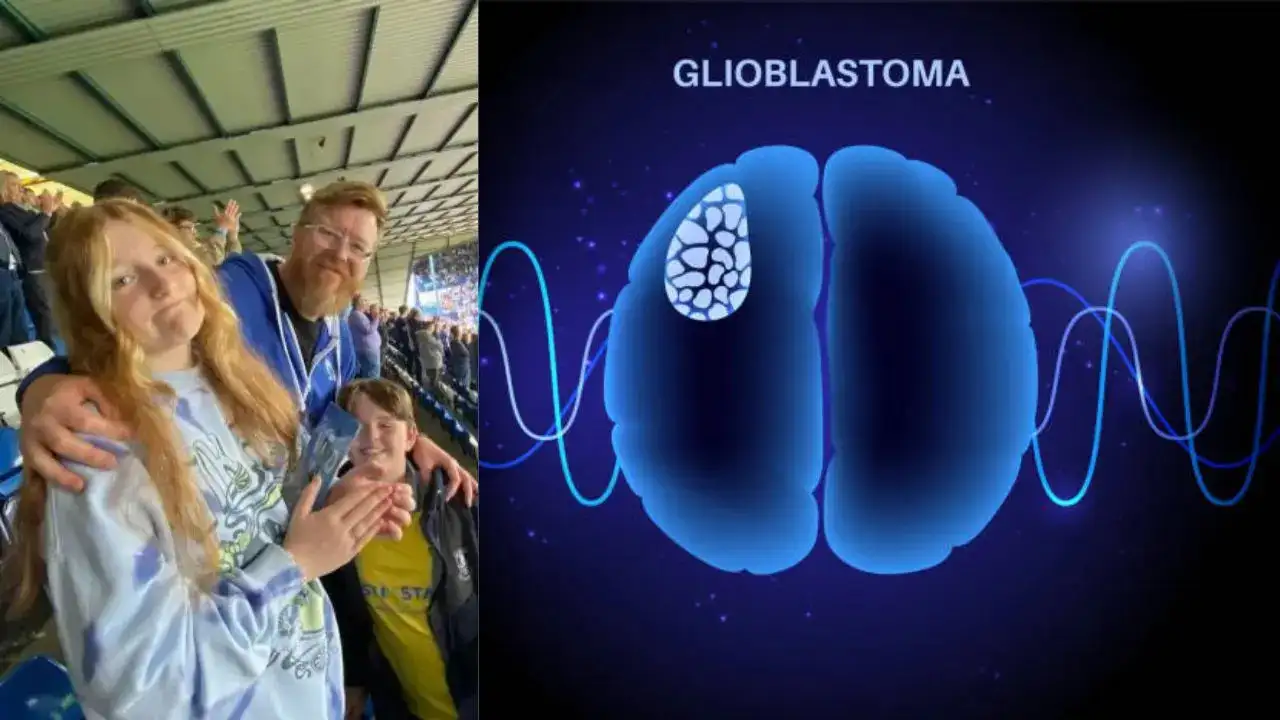
Football Fan Forgot the Names of His Favourite Players As A Symptom of An Aggressive Cancer That Killed Him
A football lover and die-hard fanatic died just months after being diagnosed with an aggressive brain tumour – as he slowly began forgetting the names of his favourite footballers and team as one of the first signs. For 48-year-old Jamie Acaster, Sheffield Club had been his favourite, for as long as he could remember. But he noticed he was finding it increasingly difficult to follow conversations alongside struggling to recall the names of the club’s footballers.
Jamie’s family said he visited the doctor many times in the past but was initially diagnosed with depression – which he strongly contested against. However, the dad-of-two's symptoms kept on worsening, and he began suffering from difficulty remembering words and making sense of conversations.
Following an MRI scan, Jamie was diagnosed with glioblastoma – a grade 4 brain tumour – the most common type in adults. It originates in the brain from cells called astrocytes, which support nerve cells. Doctors say they are highly malignant and fast-growing. Jamie also underwent an emergency surgery which removed 95 per cent of the mass, along with chemotherapy and radiotherapy, but suffered serious side effects, including liver and kidney issues.
However, 17 months after his diagnosis, Jamie – a resident of Derbyshire – died after suffering a fatal blood clot in his lungs. "He told me, 'things just don't match,' and that's when I knew something wasn't right – it was so unlike him,” said his sister Dana.
What is glioblastoma?
Glioblastoma, also known as GBM, is the most common type of cancerous brain tumour in adults. Doctors say it begins in a type of glial cell in your brain and spinal cord, known as 'astrocytes'. Cancer cells rapidly grow and multiply and can also spread into other areas of your brain and spinal cord. Rarely, cancer spreads beyond these areas.
Glioblastoma, formerly known as glioblastoma multiforme, is a devastating type of cancer that can result in death in fewer than six months without treatment.
Signs and symptoms of Glioblastoma
A few signs and symptoms of glioblastoma may include:
- Blurred or double vision
- Headaches
- Loss of appetite
- Memory issues
- Mood and personality issues
- Muscle weakness
- Nausea and vomiting
- Seizures
- Speech issues
- Changes in sensation, numbness, and tingling
According to experts, the symptoms of glioblastoma tend to come on quickly as the growing tumour puts pressure on your brain and can destroy healthy brain tissue.
What causes glioblastoma?
While experts do not know what is the exact cause, a few changes in your DNA can lead to the development of brain tumours. Your genes, which contain DNA, give instructions to your cells about how to grow and multiply. A few risk factors include:
- Exposure to chemicals, like pesticides, petroleum, synthetic rubber, and vinyl chloride
- Genetic, tumour-causing conditions, like neurofibromatosis, Li-Fraumeni syndrome, and Turcot syndrome.
- Previous radiation therapy to your head.
